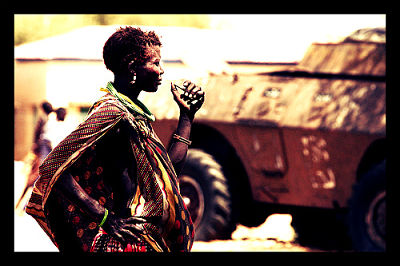Women in War

Women in War is the Harvard Humanitarian Initiative’s groundbreaking interdisciplinary approach to addressing problems that females face in impoverished and conflict-ridden states. By conducting research in affected areas, the program strives to produce pragmatic community and policy-based solutions.
Although Women in War has worked in countries ranging from Sierra Leone to Sudan, it has concentrated the majority of its efforts into ending sexual assault and violence against women in the Democratic Republic of Congo. For decades, DRC has been embroiled in what has been referred to as the greatest multistate war in the African continent.
Despite its estimated worth of $24 trillion in natural resources (DRC holds up to a third of worldwide diamond reserves), DRC’s annual GDP per capita of $171 is shockingly low. Just as political instability and social unrest have undoubtedly contributed to its struggling economy, they too have factored into the prevalence of sexual assault–often by military personnel–against civilians.
While the roots of gender-based violence are manifold, Jocelyn Kelly, an HHI Research Coordinator, postulates that soldiers–who are often enlisted at a young age through coercion–may justify rape by dissociating their actions from themselves as individuals. It has been noted that the crude process of army initiation dehumanizes the soldiers and strips them of their former identities. Moreover, among soldiers, there exists the superstitious belief that rape may lead to victory on the battlefield.
The aftermath of sexual assault is equally complex. Many women have been raped in the confines of their own homes and in front of their loved ones. Naturally, rape may also result in unwanted pregnancies and/or damage to a woman’s reproductive organs, thereby adding tangible reminders on top of psychological wounds. Women in War has sought the skills and expertise of both gynecologists and counselors to give survivors a new lease–both inside and out–on life.
A helping hand has also been extended to the perpetrators. Researchers have been developing methods to reintegrate traumatized ex-soldiers into civilian society. By recognizing the humanity inherent in both the survivor and the offender, Women in War serves as a beacon of hope in times of strife.
– Melrose Huang
Sources: Harvard Humanitarian Initiative, Women Under Siege Project BBC The OTC Investor Global Security PBS
Photo: Ms. Magazine
